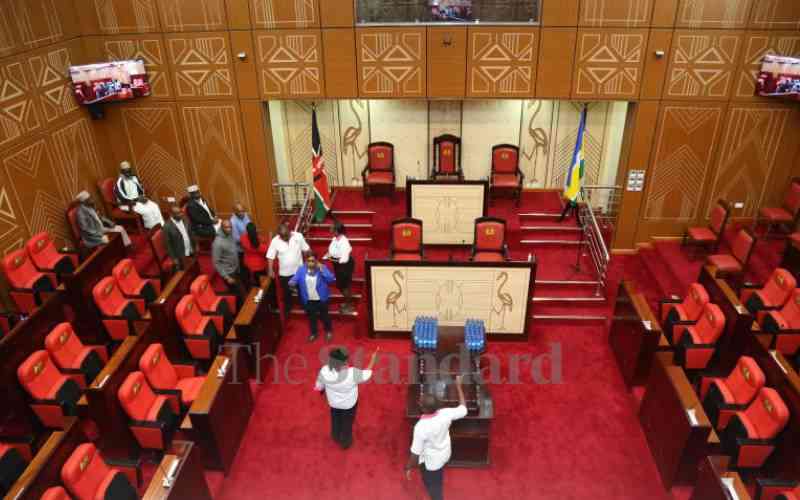
Through the 11 years of devolution, a glaring supremacy battle has dominated nearly all the 47 counties between governors and Members of County Assemblies (MCAs).
This war has wielded three distinct characteristics - threats of impeachment of governors by the MCAs, retaliatory letters to the president seeking dissolution of affected county governments and in extreme ugly scenarios, fistfights within and outside the county assembly chambers among rival factions.
In all these scenarios, a common point of conflict has been the contentious MCAs' demands for Ward Development Kitties. Most Assemblies have been demanding allocations to this kitty from the county exchequers, with the area MCA as patron of the fund in their ward. The Controller of Budget has previously termed the kitty illegal over likely duplicity of projects under the kitty with those undertaken by key line dockets through specific County Executives.
Facts First
This story continues on The Standard INSiDER. Subscribe now for unfiltered journalism that holds power to account.
Already have an account? Login
 The Standard Group Plc is a multi-media organization with investments in media
platforms spanning newspaper print
operations, television, radio broadcasting, digital and online services. The
Standard Group is recognized as a
leading multi-media house in Kenya with a key influence in matters of national
and international interest.
The Standard Group Plc is a multi-media organization with investments in media
platforms spanning newspaper print
operations, television, radio broadcasting, digital and online services. The
Standard Group is recognized as a
leading multi-media house in Kenya with a key influence in matters of national
and international interest.


